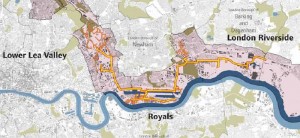Site search:
-
What’s new?
Energy for London Tags
Brent Buildings Camden Carbon Emissions CHP Cities Climate Adaptation Community Heating Community Initiatives Croydon Data DECC Decentralised Energy Distribution ECO Energy Costs Energy Efficiency Enfield FIT Fuel Poverty Funding Green Deal Hackney Haringey Housing Islington Lambeth Library Local Authorities Mayor Newham Ofgem Olympics Photovoltaics Planning RE:FIT RE:NEW Renewable Energy Retrofit Southwark Tower Hamlets Transport Waltham Forest Waste WestminsterEnergy Archives:
- February 2021 (1)
- January 2021 (15)
- December 2020 (15)
- November 2020 (9)
- October 2020 (3)
- August 2020 (5)
- July 2020 (3)
- June 2020 (4)
- April 2020 (10)
- March 2020 (5)
- February 2020 (2)
- January 2020 (3)
- October 2019 (1)
- September 2019 (4)
- August 2019 (2)
- July 2019 (1)
- August 2018 (1)
- November 2016 (8)
- October 2016 (8)
- September 2016 (2)
- August 2016 (8)
- July 2016 (14)
- April 2016 (12)
- March 2016 (16)
- February 2016 (8)
- January 2016 (4)
- December 2015 (1)
- November 2015 (1)
- October 2015 (16)
- September 2015 (3)
- June 2015 (1)
- May 2015 (1)
- April 2015 (1)
- March 2015 (1)
- February 2015 (1)
- January 2015 (1)
- December 2014 (18)
- November 2014 (4)
- August 2014 (8)
- July 2014 (7)
- June 2014 (25)
- May 2014 (8)
- April 2014 (4)
- March 2014 (12)
- February 2014 (7)
- January 2014 (13)
- December 2013 (11)
- November 2013 (15)
- October 2013 (15)
- September 2013 (18)
- August 2013 (5)
- July 2013 (20)
- June 2013 (33)
- May 2013 (8)
- April 2013 (16)
- March 2013 (25)
- February 2013 (14)
- January 2013 (20)
- December 2012 (23)
- November 2012 (23)
- October 2012 (25)
- September 2012 (14)
- July 2012 (12)
- June 2012 (43)
- May 2012 (20)
- April 2012 (8)
- March 2012 (40)
- February 2012 (39)
- January 2012 (40)
- December 2011 (22)
- November 2011 (40)
- October 2011 (33)
- September 2011 (48)
- August 2011 (40)
- July 2011 (58)
- June 2011 (41)
- May 2011 (80)
- April 2011 (38)
- March 2011 (33)
- February 2011 (25)
- January 2011 (24)
- December 2010 (3)
- November 2010 (7)
- October 2010 (6)
- September 2010 (7)
- August 2010 (1)
- July 2010 (2)
- June 2010 (4)
- May 2010 (1)
- March 2010 (3)
- February 2010 (3)
- December 2009 (5)
- November 2009 (2)
- October 2009 (3)
- July 2009 (3)
- June 2009 (1)
- April 2009 (1)
- March 2009 (1)
- February 2009 (1)
- January 2009 (1)
- December 2008 (2)
- October 2008 (1)
- September 2008 (1)
- July 2008 (1)
- March 2008 (2)
- January 2008 (2)
- October 2007 (1)
- September 2007 (3)
- July 2007 (1)
- March 2007 (1)
- February 2007 (3)
- November 2006 (3)
- August 2006 (1)
- February 2006 (1)
- May 2005 (1)
- February 2004 (1)
Library
Hotting Up? An Analysis of Low Carbon Plans and Strategies for UK Cities
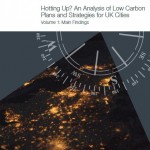 28 March 2012: Interesting – and detailed – report published by the Royal Institute of Chartered Surveyors (RICS) analysing progress by UK cities work on reducing their carbon impact through the development of climate change action plans and related actions. One of the key recommendations of the report sets out that Government should:
28 March 2012: Interesting – and detailed – report published by the Royal Institute of Chartered Surveyors (RICS) analysing progress by UK cities work on reducing their carbon impact through the development of climate change action plans and related actions. One of the key recommendations of the report sets out that Government should:
- Develop a new policy framework which recognises the role of cities in the climate change and low carbon agendas. The majority of the UK’s population lives in cities, and they are vital in providing a focus for tackling climate change and responding to the low carbon agenda through technology deployment and access to finance. A new ‘low carbon city’ framework,which builds on the existing DECC pilots, should be developed and the concepts of ‘low carbon city’ and‘low carbon society’ should be clearly defined within this framework.
The report and accompanying appendix contains significant amounts of analysis regarding London metrics on energy and carbon in relation to other cities. Download Hotting Up? An Analysis of Low Carbon Plans and Strategies for UK Cities here.
City-scale emissions accounting standard for public comment
20 March 2012: ICLEI – Local Governments for Sustainability and C40 Cities Climate Leadership Group released today a draft edition of the Global Protocol for Community-scale Greenhouse Gas Emissions(community protocol) to help cities around the world measure and report GHG emissions using a more consistent protocol.
The full document and accompanying fact sheet are now available for review. Comments on the full document should be submitted through the feedback form template. The deadline for feedback is 20 April 2012. Feedback should be sent directly to GPC@iclei.org
ICLEI and C40 will be hosting two public webinars, with dedicated outreach to ICLEI and C40 member cities, onTuesday 3 April 2012 from 7:00am – 8:00am UTC (GMT) and Wednesday 4 April 2012 from 3:00pm – 4:00pm UTC (GMT).
To register or for receive further details on these upcoming events please contact GPC@iclei.org
Full details on the following news release.
Number of households affected by fuel poverty in London is continuing to rise
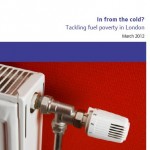 13 March 2012: The London Assembly Health and Public Services Committee have published their conclusions from a lengthy study looking at the incidence and causes of fuel poverty in the capital. The report warns that “despite efforts by the government, the Mayor and a range of targeted initiatives and incentives, the number of households affected by fuel poverty in London is continuing to rise.”
13 March 2012: The London Assembly Health and Public Services Committee have published their conclusions from a lengthy study looking at the incidence and causes of fuel poverty in the capital. The report warns that “despite efforts by the government, the Mayor and a range of targeted initiatives and incentives, the number of households affected by fuel poverty in London is continuing to rise.”
The report ‘In from the cold’ makes a series of recommendations that the Committee state could help improve the situation for the “nearly one in five London households who struggle to heat their homes and pay their energy bills.”
The Committee state that unless action is taken to tackle the problem, long-term energy price rises will continue to push more people into fuel poverty: the Greater London Authority’s (GLA) own projections show a worst case scenario that almost a quarter of households will be in fuel poverty by next year.
View the press announcement of the report here. The report can be viewed here and a new fuel poverty mapping tool using open public data to help delivery organisations identify areas in London most likely to contain households at risk of fuel poverty and offer them targeted support can be downloaded from the London datastore here. Written evidence to the committee can be downloaded here.
London’s Buildings need to adapt
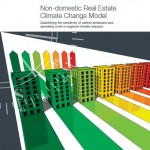 March 2012: Research just released by the Royal Institute of Chartered Surveyors (RICS) highlights the challenges that many buildings will face in the future as a result of a changing climate. Increasing energy use is widely predicted responding to summer temperatures up to two degrees higher by 2030 and up to two degrees cooler in the winter. In particular, the report highlights that it is London ’s schools, offices and hospitals that will incur the largest increase in electricity demand as more power is used to maintain a ‘comfortable environment’. Read the RICS news release here and download the report – the Non-domestic Real Estate Climate Change Model here.
March 2012: Research just released by the Royal Institute of Chartered Surveyors (RICS) highlights the challenges that many buildings will face in the future as a result of a changing climate. Increasing energy use is widely predicted responding to summer temperatures up to two degrees higher by 2030 and up to two degrees cooler in the winter. In particular, the report highlights that it is London ’s schools, offices and hospitals that will incur the largest increase in electricity demand as more power is used to maintain a ‘comfortable environment’. Read the RICS news release here and download the report – the Non-domestic Real Estate Climate Change Model here.
The report states [p10] that this ” research has been made possible only with the release of 64,803 Display Energy Certificate (DEC) records, secured with the help of the Urban Land Institute, which facilitated several Freedom of Information requests to obtain these data.” Unfortunately this data doesn’t appear to have been made publicly available by the Urban Land Institute – however – a simple map of DECs has been created so that individual buildings ratings can be viewed – see www.less-en.org.
Similar data was however also obtained recently by the Centre for Sustainable Energy (CSE) and has been posted online for download at www.cse.org.uk. The spreadsheets contains data on energy use, floorspace, emissions and efficiency ratings for 40,000 buildings of over 1,000m2 in England and Wales that are visited by the public. See an earlier post for additional details.
New definition will push up the incidence of fuel poverty in London
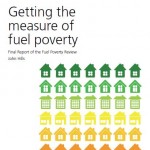 March 2012: The final report from Prof. John Hills has just been published, which provides a series of recommendations to Government in relation to amending the current definition of fuel poverty. The detail behind this study has been covered in some previous posts (see here) but a key output is to recommend that “Government should measure incomes for fuel poverty purposes after housing costs and adjusted for household size and composition.” As a result, the report’s revised indicator (to replace the Government’s current fuel poverty definition) – the LIHC (Low Income High Costs) – “finds that London households account for a greater proportion of fuel poor households than the official indicator.”
March 2012: The final report from Prof. John Hills has just been published, which provides a series of recommendations to Government in relation to amending the current definition of fuel poverty. The detail behind this study has been covered in some previous posts (see here) but a key output is to recommend that “Government should measure incomes for fuel poverty purposes after housing costs and adjusted for household size and composition.” As a result, the report’s revised indicator (to replace the Government’s current fuel poverty definition) – the LIHC (Low Income High Costs) – “finds that London households account for a greater proportion of fuel poor households than the official indicator.”
The report is vitally important to the debate on how we define future policies to tackle fuel poverty, and will have impacts on framing of the forthcoming Energy Company Obligation (ECO) and the Green Deal.
Links to the report and supplementary material follow below:
- Final report of the Fuel Poverty Review by John Hills – Getting the measure of fuel poverty and also the
- Hills Review Final Report Press Notice
- DECC’s press notice
- Getting the measure of fuel poverty: summary and recommendations
- Data used to produce charts for the final report of the Fuel Poverty Review (Excel file)
- Professor Hills’ presentation on the final report: Getting the measure of fuel poverty (Powerpoint – 5MB)
Transforming the energy market through local energy production
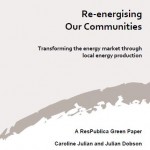 13 February 2012: New ‘Green Paper’ from think-tank ResPublica – Re-energising Our Communities: Transforming the energy market through local energy production – focuses on opportunities for ‘community energy, referring here to the “means of generating and distributing energy that is owned and led by communities, rather than by individuals or private businesses. Community energy vehicles are democratically accountable to community members and participants and may deliver a financial return to investors, or reinvest surplus profits back into the project and wider locality.”
13 February 2012: New ‘Green Paper’ from think-tank ResPublica – Re-energising Our Communities: Transforming the energy market through local energy production – focuses on opportunities for ‘community energy, referring here to the “means of generating and distributing energy that is owned and led by communities, rather than by individuals or private businesses. Community energy vehicles are democratically accountable to community members and participants and may deliver a financial return to investors, or reinvest surplus profits back into the project and wider locality.”
The study makes a number of recommendations including:
- DECC should recognise the need for a co-ordinated support programme for community energy
- DECC, the Cabinet Office and the Treasury should conduct a cross-departmental review to examine the potential for community energy projects
- Through forthcoming changes to local government finance, local authorities may retain a share of uplifts in local business rate income which could in turn be used for community investment
- DECC and DCLG should work together to produce guidance on how the new ‘rights’ within the Localism Act 2011 could be used to support community energy.
Latest Fuel Poverty Updates for London
February 2012: National Energy Action (NEA) have just published their latest estimates of fuel poverty across the UK, which include regional breakdowns. The briefing document (link here; document here) reports that:
- There are an estimated 6.6 million UK households live in fuel poverty
- By October 2011 all six major suppliers had raised their energy prices adding approximately £300 onto the average household energy bill
- Last winter brought an estimated 25,400 excess winter deaths (page 13 of the paper)
- Of which provisional figures estimate that 2,500 deaths were in London
- There has been an increase in the number of fuel poor households in London from 401,859 (13.3%) in 2009 to 564,691 (18.6%) in 2011 (page 15 of the paper)
Local authority action for energy efficiency in housing stock
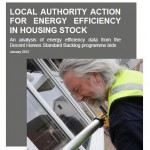 25 January 2012: This paper presents the findings of analysis of energy efficiency data supplied by landlords with bids for funding from the Decent Homes Standard Backlog programme administered by the Homes and Communities Agency (HCA).
25 January 2012: This paper presents the findings of analysis of energy efficiency data supplied by landlords with bids for funding from the Decent Homes Standard Backlog programme administered by the Homes and Communities Agency (HCA).
Posted in Data Store, Library
Tagged CERT, Energy Efficiency, Housing, Local Authorities
Leave a comment
London faces rising temperatures
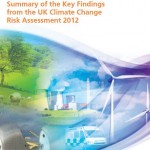 January 2012: The Government published the UK Climate Change Risk Assessment (CCRA) on 25 January 2012, the first assessment of its kind for the UK which highlights the top 100 challenges to the UK faces as a result of a changing climate. Amongst the many changes predicted in the assessment, a number are directly in relation to London, specifically:
January 2012: The Government published the UK Climate Change Risk Assessment (CCRA) on 25 January 2012, the first assessment of its kind for the UK which highlights the top 100 challenges to the UK faces as a result of a changing climate. Amongst the many changes predicted in the assessment, a number are directly in relation to London, specifically:
- On average, hot weather accounts for around 1100 premature deaths a year in the UK. By the 2050s, this figure is projected to increase by between 580 and 5900, with the greatest risk in London and southern England.
- Summer overheating is projected to emerge as a significant risk, potentially contributing to heat-related health problems. In London, for instance, the number of days in an average year when temperatures rise above 26°C is projected to increase from the current figure of 18 to between 27 and 121 by the 2080s.
The Evening Standard summarised the findings thus: London ‘facing killer summers in climate peril’!
Chapter 5 of the London Climate Change Adaptation Strategy (issued in October 2011) focuses specifically on the issue of overheating in London as a result of climate change and commits to taking forward a number of actions including:
- working with boroughs to identify opportunities for combined cooling, heat and power and other forms of low-carbon cooling and
- promoting ‘cool roof technology’ (highly reflective, well-insulated roofs) in London to reduce demand for mechanical cooling.
Camden Climate Change Alliance
January 2012: The Camden Climate Change Alliance (CCCA) was formed by Camden Council in 2008 to help organisations in the borough committed to reducing their carbon dioxide emissions. The Alliance membership has grown from 125 to 172 (38% increase) from Nov 2010 to Nov 2011 and theAlliance is on track to meet its 10% reduction target by end 2012. An estimated 7.8% decrease in carbon emissions was achieved from 2008/9 to2010/11. Read the Alliance’s recent annual report at betterclimateforcamden.org. Further information is also provided in a report to Camden’s Environment Committee here.
Public-Private Approaches for Energy Efficiency Finance
 January 2012: The International Energy Report (IEA) have published a report looking at examples of how public-private opportunities can be used to drive forward energy efficiency investments in the public sector. The report also examines the role of Energy Service Performance Contracts. A few international examples are highlighted – however no reference to London’s RE:FIT programme. The IEA report can be downloaded here.
January 2012: The International Energy Report (IEA) have published a report looking at examples of how public-private opportunities can be used to drive forward energy efficiency investments in the public sector. The report also examines the role of Energy Service Performance Contracts. A few international examples are highlighted – however no reference to London’s RE:FIT programme. The IEA report can be downloaded here.


